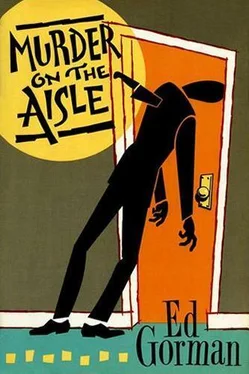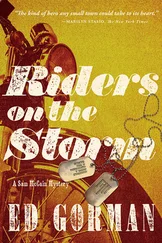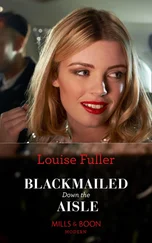All Neely did was to take another toke and sort of shrug at Tobin as if to say, He made some good points, you gotta give him that, some good points.
“So you’re arresting me?”
“Not yet.”
“Why not?”
“Because Frank Emory’s father is important and Frank talked his father into calling a friend at the Mayor’s office.” He smiled. “But you’ve seen a lot of cop movies, Tobin. So you know better than to leave town, right?”
Tobin sighed. “Right.”
Huggins merged with Frog Face again. “I’m going to nail you, Tobin. Nail you real good.”
With that, he turned, glared at both of them, and stalked dramatically back to his unmarked Pontiac sitting at the curb.
“What a dumb fuck,” Neely said. “He didn’t even know I had a joint.”
“You were a big help. Thanks a lot.”
“Hey, I told you I was a crummy lawyer,” Neely said earnestly.
Tobin shook his head. “I guess I should have believed you, shouldn’t I?”
3:48 P.M.
Tobin had always envied Richard Dunphy his house (not to mention, for a time, his wife). The three-story white clapboard sat on a dead-end street that wound up through fir trees and pines. You had the sense of isolation, but your nearest neighbor was no farther away than an eighth of a mile.
Now, as the cab pulled up the curving driveway, Tobin saw a snowman, arms wide in greeting, carrot nose and coal-piece smile, a red stocking cap on its head, standing in front of the house. For the first time since Richard’s death, he thought not of himself and his own problems with the police and with his future career, but of the children involved. He was their godfather and he hadn’t given them a thought.
Walking up to the long, screened-in porch, redolent always for Tobin of the late fifties when you sat through summer afternoons of Ray Bradbury and Isaac Asimov paperbacks and drank lemonade or a bottle of Pepsi that still only cost ten cents. But now there was snow and frost on the porch and it was a long way from the relative innocence of the fifties.
When she opened the door for him he could see that she hadn’t gotten much sleep and he could smell that she’d had more than a little to drink. She wore one of Dunphy’s blue cardigans (he’d worn blue cardigans since their college days) and a white blouse and loose jeans and she still managed, in her suburban way, to look very pretty. “Hello, Tobin.” She didn’t open the door.
“I’d like to come in.”
“I’m not sure that’s a good idea.”
“I really need to talk.”
“There was a report on the news — a very broad hint — that you might be implicated in Richard’s death. The kids saw it.” She winced. “I’m not sure now would be a good time for them to see you.”
“Please. I need to ask you a few questions.”
She smiled. “Playing detective?”
“I don’t have much choice, do I? The police aren’t even seriously considering any other suspects.”
She assessed him, then said, “Do you think I might have done it?”
He looked at the floor and then he looked back up. “I don’t know.”
“You do think I’m a suspect.”
“At this point, everybody’s a suspect.”
“Thank you very much.”
“You’re not at the top or anything, though.”
“The top?”
He patted his pocket. “The top of my list. I’m making a list of all the potential suspects. You’re near the bottom.”
Without humor, she joked, “That’s a relief.”
He couldn’t stop what he said next. “I can’t believe you’re involved with Michael Dailey.”
For the first time, she averted her blue eyes. When she looked back up at him, she sighed. Then she opened the door and held it back so he could walk in.
There was a Christmas tree wide enough to fill an entire corner of the large living room, with spangly tinsel and flashing red and blue and green lights and beatific white angels and a long line of reindeer. Spread around the bottom of the tree were piles of presents, some wrapped with great solemn formality (Bloomingdale’s, Neiman Marcus, Carson Pine Scott), others obviously done with the haste and inexperience of a child’s hand. But he did not need to ask what presents the two kids would want most for this Christmas — their father.
She saw him looking around and said, “They’re up in the hills with their sleds.”
“Oh.”
“It’s none of your business, Tobin.”
“Michael?”
“Right. Michael.”
“So you won’t talk about it?”
This time she only shrugged. “You want some Irish coffee? That’s what I’m having.”
“No. I need to be very sober.”
“Sure?”
“Sure.”
“I didn’t kill him,” she said.
“I don’t really think you did.”
“Then why are you here?”
“For one thing, I’d like to see a copy of that script, if you’ve got it.”
“Oh, yes, the script.”
“You sound bitter about it.”
“It’s not the script that makes me bitter. It’s all the grief the script caused.”
“What grief?”
“For one thing, a man named Ebsen.”
“I met him this morning. Nice guy.”
“He’s a sick man.” As he watched her, he saw an edge he’d never known her to have before — a certain hardness. Then he recognized it for what it really was. She was uncomfortable around him. They’d slept together a hundred times, he’d held her head while she vomited, she’d eased his grief the night he burned his screenplay and swore off writing anything but criticism (a bad and dangerous night, that). And now she was uncomfortable around him.
“I got that impression,” Tobin said.
“He claims that Richard took the draft of a script he wrote and changed it a little, then sold it himself.”
“Do you think that’s possible?”
She stared at him directly. “As you suggested a few minutes ago, Tobin — anything’s possible.”
“He wants money.”
“I know. He’s called here three times today already.”
“He says he’ll go to the press with the story if he doesn’t get his money by six.”
“Do you know how much he wants?”
“No.”
“A hundred thousand dollars.” She smiled and in that moment she was the woman he’d loved for so many years. It was her absurd smile, the one that said the world was just too unbelievable to cope with. “He seems to think I keep that much cash in my cookie jar.”
He laughed. “You mean you don’t?”
It was the right thing to say, and the right way to say it, because she came into his arms almost before he was through speaking. “Oh, God, Tobin, it’s so crazy.”
He let her cry.
“It’s all right,” he said at one point, stroking the back of her head. They used to be good at that with each other — comfort and succor, he the Daddy one night, she the Mommy the next.
When she stopped crying, she pulled back and looked him in the face and said, “Is my nose running?”
“No. But it’s very red.”
She laughed. “Red I can live with.” She sort of snuffled and then angled her head and looked out through the big window on the side at the firs that sloped all the way up to the horizon line in the bright sunlight outdoors. “You want me to tell you about Michael?”
“You don’t have to.”
“But you want me to.”
“I guess I’m curious, if that’s what you mean.”
“He’s actually got a nice side.”
He sighed. “I just realized something.”
“What?”
“You really do care about him, don’t you?”
She nodded.
“Boy, maybe this won’t be so much fun to hear.”
She touched his cheek. Gently. “Then let’s talk about something else.”
Читать дальше












